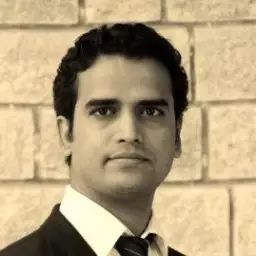Vivek Sharma : The Founder of Fixcraft.in who has Set the Indian Auto Sector on Fire
Talking about fancy expensive car companies, we can name hundreds of them, isn’t it? But what after you purchase the car? Do you get proper servicing at an affordable rate, or is it like spending your month’s half salary to fix the car? Indeed, the original equipment manufacturer (OEM) workshops are not affordable for everyone, but currently, they are dominating the market. So do you have any names in mind that are up for the game, but at cheaper prices? Well, we have one. Fixcraft.in it is!
Yes, Fixcraft.in is a fresh start-up in the automobile industry, established to improve the Auto After Sales services in India. Vivek Sharma, the founder of Fixcraft.in, founded the company on 10th October 2018 to make significant growth in the automobile sector and especially, to remove the burden of expensive garage costs for all the car owners.
Education and Early Career of Vivek Sharma
Sharma went to Marine Engineering and Research Institute and graduated with a B.E. degree in 2006. After passing out as a marine engineer, in 2006 he joined Seaarland Shipping Management B.V. as an assistant to chief engineer. He worked there for three years, and during this period, he was also exposed to the work culture of foreign countries. He travelled across 26 different countries and trained a team on how to act at the time of various emergencies. His major works included managing, operating and maintaining the schedule of the engine room of the ship.

He left the company in 2009 and joined Indian Institute of Management, Bangalore in 2010 and graduated with a Post Graduate Diploma in Management, Strategy and Marketing, in 2012. During his time in IIM, Bangalore he did a summer internship from the Philips Electronics India Ltd. He learned about the cluster analysis, competition analysis; develop a market strategy with information and data making and estimating market potential.
After graduating from IIM, Bangalore, he was again back to Philips Electronics as a Deputy Manager (Lighting) and worked there for a year. His main job there was to manage B2B sales in Delhi.
In May 2013, he joined the Hyderabad branch of the company as ASM, Andhra Pradesh (Lighting) and became the sales head for B2B Lighting Division of Andhra Pradesh.
In the next year, his career met huge success, as he joined Snapdeal as Associate Director. He was the founding member of the Account Management Team, and also, the Head for Sales and Strategy for key categories. He left Snapdeal in November 2016.
The last company he joined before founding his own was Droom Technology, a start-up by Sandeep Aggarwal. He joined the company as Senior Director of Business Development as was promoted to Associate Vice President of the same department after 9 months. He left Droom just one month before founding his own company.
Fixcraft.in
By the time Sharma founded Fixcraft.in, he had already gathered more than enough experience and knowledge in the automobile sector. The main motive of Sharma was to bridge the gap between local garages and OEM workshops for After Sales Services. Moreover, the market for After Sales Services was expected to reach a value of 20 billion in the next five years. And, this section of the industry includes both old and new customers, which means there will be possibly no drop-in rate of consuming services in this sector.
Fixcraft.in is the first Indian full-stack cloud-based garage which provides service starting from parts replacement to car painting at a very fair price.
Sharma’s biggest challenge while founding Fixcraft.in was to build a strong team and get it to work together. But with time, he has built a good core team and now working on expanding his business. Since Sharma’s main goal was to provide quality services at an affordable price, he is operating on the Cost Plus model of pricing.
In this very year, Sharma’s business received an undisclosed amount of money in seed funding, which included some significant angel investors, like Ranjan Kant, Former Director at the Furniture Republic and CBO at Ofbusiness; Rahul Taneja, ex CBO at Jabong, and from the other existing investors. The company also has Rishab Malik in the advisory team, who worked with Droom and GSF India.
Future Plans
With less than a year of its establishment, Fixcraft.in is doing well in the automobile sector. With its business running only in Delhi NCR, they are planning to expand it to Pune and Bangalore, within next few months. By the end of 2020, Fixcraft.in plans to establish a business in the top 15 cities of India.

Annasha Dey is an NIT student, who apart from studying engineering is also a content writer. She has a great interest in photography, writing, reading novels, and travelling as well. She is a foodie who loves socializing and hanging out with her friends. She is also a trained Kathak dancer and a big fashion enthusiast. Dey also loves watching TV series, which includes F.R.I.E.N.D.S. and Big Bang Theory. To be a better writer she prefers to read more









